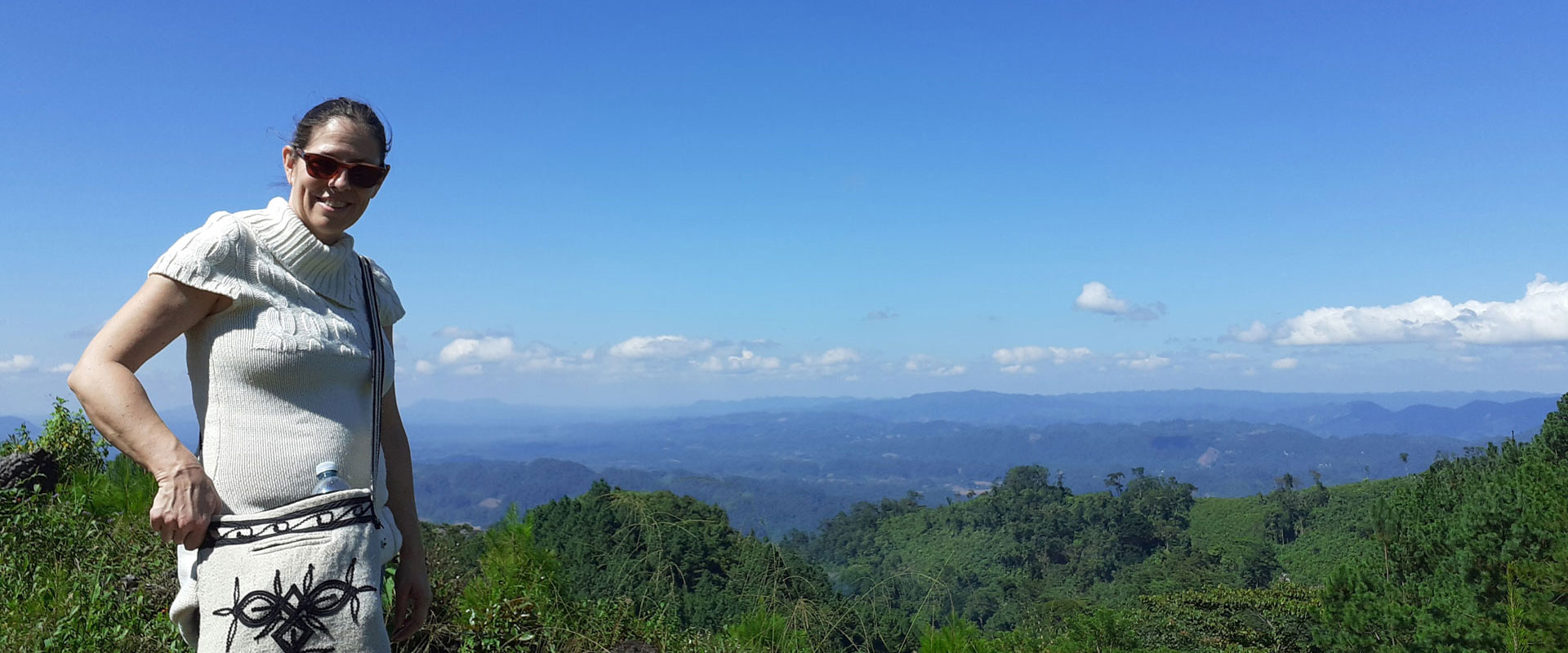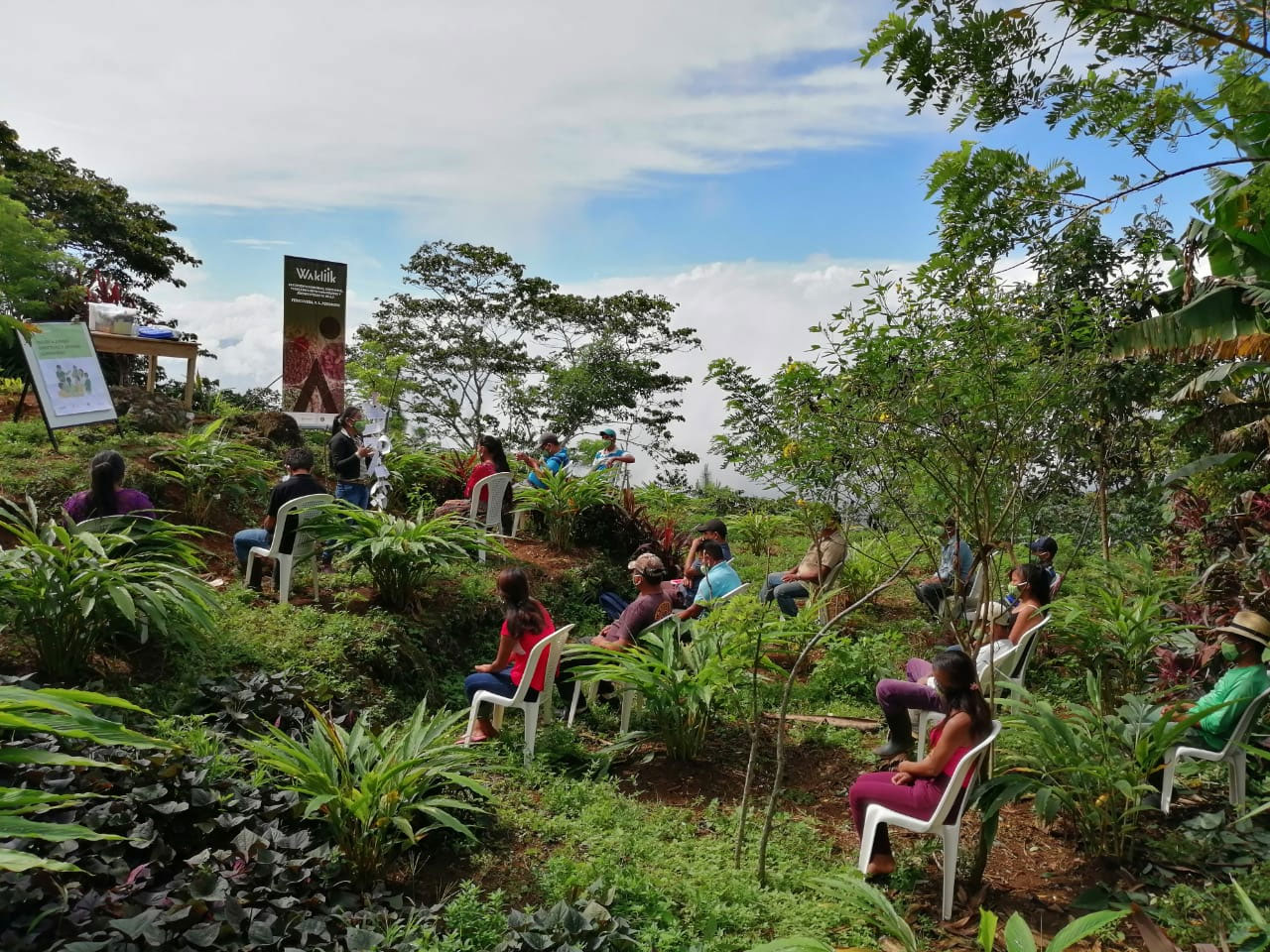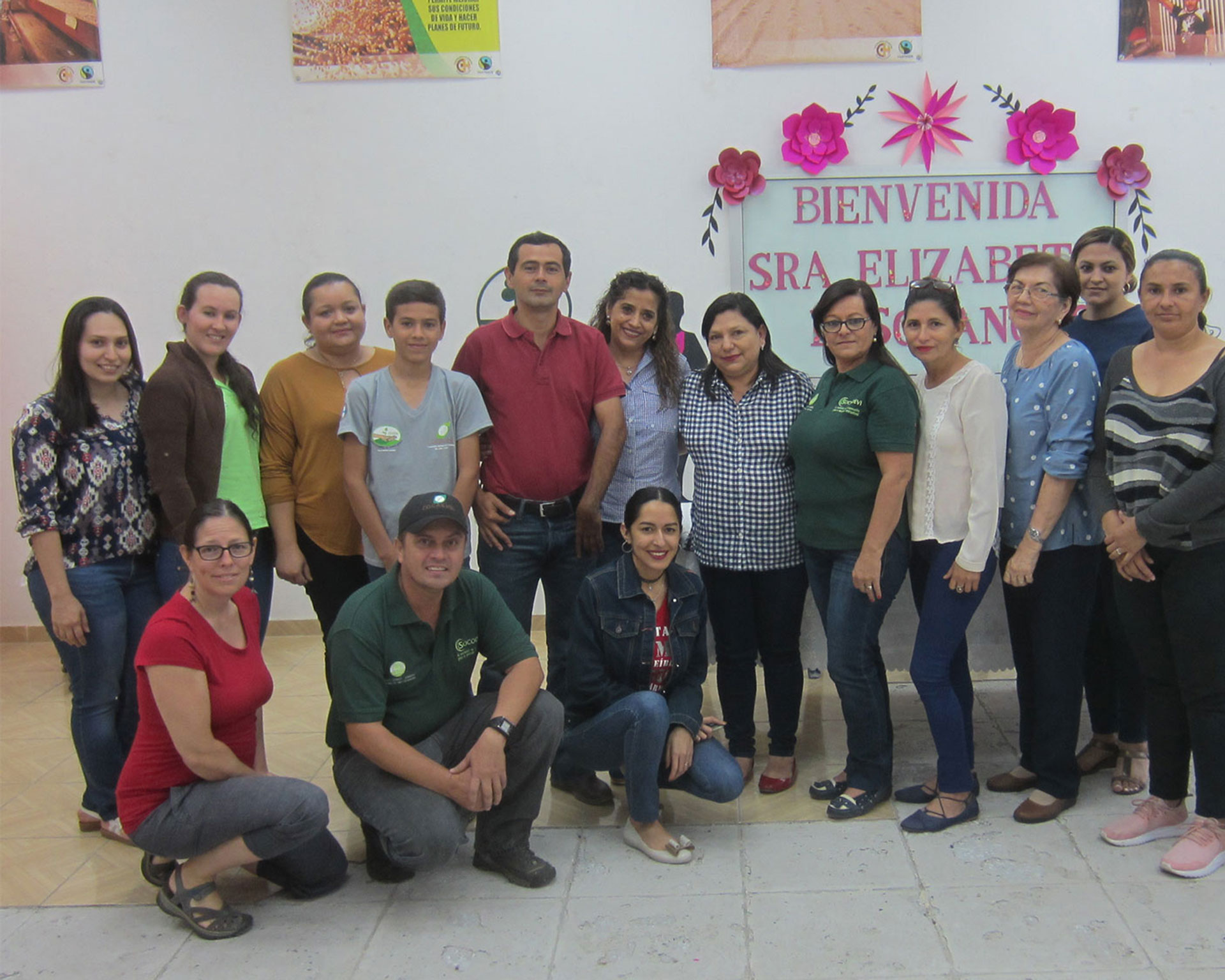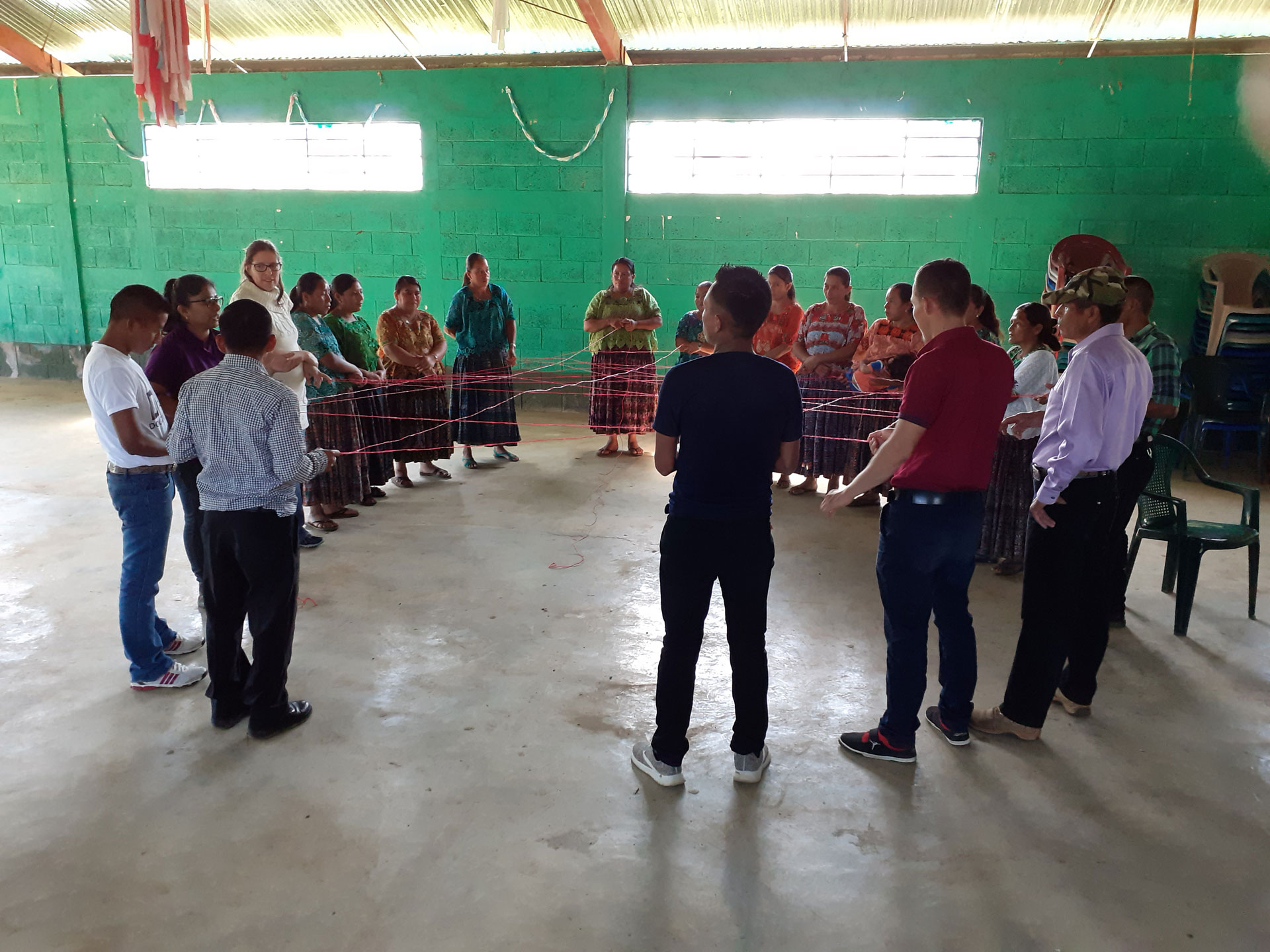My path in cooperation has crossed many political and climate crises, but it is the first time my work is at this point disrupted due to an international health crisis. I lived for many years in Guatemala. Emergency responses punctuated my work, but human contact had never been an obstacle.
A letter from Elisabeth Desgranges, Gender Equity Advisor for SOCODEVI.

When I started working with SOCODEVI, I got involved in our projects in Latin America, mainly in agricultural cooperatives’ women inclusion processes. Not only have I discovered a dedicated team and a dynamic organization, I discovered a sustainable and solidary option for economic development: the cooperative approach.
ELISABETH DESGRANGES
Gender Equity Advisor
Within the cooperatives I visited, women and youth committees were building equality policies and action plans for better female participation in their organizations’ decision-making structures, to promote inclusion and equality. My role being to support these processes, I was already aware of the extent of the task in the various projects.
The Pandemic Against Women
Then, without warning, the COVID-19 pandemic paralyzed the planet, exacerbating the inequalities mainly experienced by women. In Colombia, for example, the figures (Restrepo & al., Core Women, 2020) show a much greater decrease in remunerated rural activities for women than for men, due to the pandemic, while the space occupied by women was already restricted. Hence, it is essential for us not to delay the execution of our projects and avoid more dreams to be put on hold.
Cooperatives and associations reacted quickly to reduce the effect of the pandemic on their members. With SOCODEVI, we have also reassessed priorities, without, however, giving in to the “tyranny of urgency.” We, consequently, remain focused on gender equality, as evidence confirm that the impact of the pandemic on women is disproportionate, just as it has been in other disasters. We are talking about loss of income, increased mental workload, domestic tasks, a vulnerability in the context of domestic violence, etc. The crisis, therefore, forces us to prioritize health and the prevention of violence. Our partners consult with women and join forces with local women’s rights organizations to set up campaigns and raise awareness of gender-based violence.
Rate of remunerated rural activities before the pandemic (Colombia)
![]()
Rural employment reduction rate between March and April 2020 (Colombia)
![]()
Overcoming Challenges
In Colombia, as in other countries where we have projects, timetables and activities have been revised. First to ensure the physical security of all, then to avoid violence against women, ensure food security for peoples, minimize the economic impacts of the pandemic, and ensure the maintenance of decent living conditions. Some families have also created vegetable gardens in recent months to feed themselves with fresh local products. Despite the constraints created by the pandemic (access to transport, border closures, scarcity of labor, reduction in demand, etc.), we have found the means to go ahead with training and agricultural activities, as well as to set up marketing strategies.
In fact, in the countries where we work, going virtually does not happen in a blink of an eye. Access to the internet or a reliable network is very spotty. However, we are using our creativity to maintain contact! The training continues through radio capsules, via social media, or even through individual visits to families.
While in Canada we talk about economic recovery and criticize certain decisions, elsewhere, people cannot count on such generous and democratic government programs. Survival is their utmost worry. The cooperatives are trying to make up for the lack of a social safety net, by focusing on the economic recovery. These businesses, symbols of resilience, are and will remain our allies to improve inclusively and sustainably the populations’ living conditions.

Think Coop!
You know, here, when restaurants and small cafes close, not only it has disastrous consequences for our local businesses, but also the coffee producers. Who will purchase their products? Cooperatives, supported by SOCODEVI, have set up programs to buy back their production, to prevent discount sales for quick revenues. For example, during the pandemic, in Honduras, such a program enabled the beneficiaries of the CAHOVA project to obtain three times the stock exchange rate for their coffee.
SOCODEVI keeps working for a less painful crisis exit and to ensure that COVID-19 does not rhyme with a decline in women and girls’ rights and living conditions.
After all this time in international cooperation, I am convinced that cooperatives can be important economic springboards and pillars of resilience in hard times, especially for women. So, for an inclusive and sustainable economic recovery, let’s think of coops!
Elisabeth Desgranges is a one of SOCODEVI’S gender equality advisor since November 2019. She has worked in cooperation for 18 years. She has a background in Native Studies and Education, as well as a Religious Studies Master.

